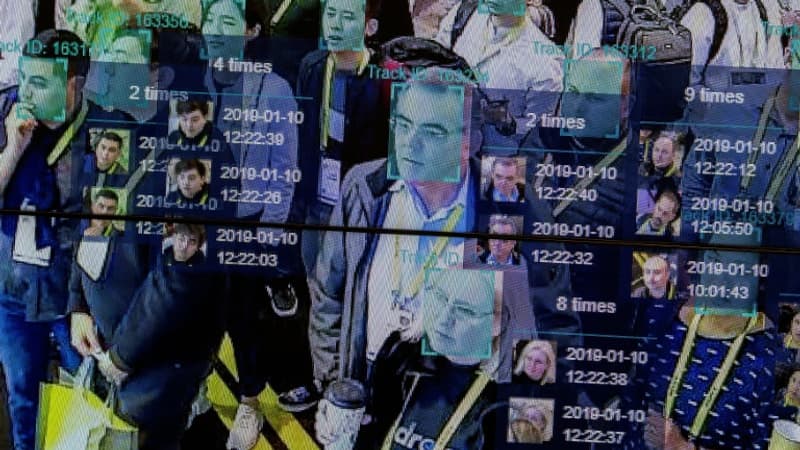The two rapporteurs of this fact-finding mission launched in September 2022 on the use of “security images” in the public domain developed their work with a view in particular to the 2024 Olympic Games and “to the increase in the power of artificial intelligence”. . .
At the end of their hearings, they make 41 recommendations and ask France, which “currently does not have an appropriate legal framework to experiment with biometric recognition solutions” to “legislate quickly to anticipate the needs of the coming years.”
In particular, they propose “to establish an experimental framework to test biometric recognition solutions in the judicial context, to find an individual a posteriori”.
Terrorism, crime and kidnapping
They also ask that the use of facial recognition software be authorized “for certain cases of extreme urgency or sensitive investigation” by law enforcement and intelligence “for a limited time” and “under the control of the ‘judicial authority’ “.
According to his proposal, the use of facial recognition would be authorized in three cases: to find the suspect of a terrorist act or that harms the fundamental interests of the nation; in the fight against organized crime; and for the search for a minor or his kidnapper in the framework of a “kidnapping alert”.
The parliamentarians, however, say they oppose the deployment of “real-time remote identification devices in public places on a permanent and general basis” and also do not want facial recognition to be used to maintain order.
“Global Review” of the Rules
More generally, they call for a “global review” of the rules applicable to the different image capture devices, the current legal framework according to them being “scarce and difficult to read.”
In particular, they recommend “harmonizing” the retention period of the images, setting it at 30 days, “regardless of the capture vector used”. They also call for “continuing reflection to extend the useful life” of the images, saying that their mission has revealed “difficulties” related to a “too short” useful life, which “may cause loss of opportunities for victims of crime “.
Source: BFM TV


